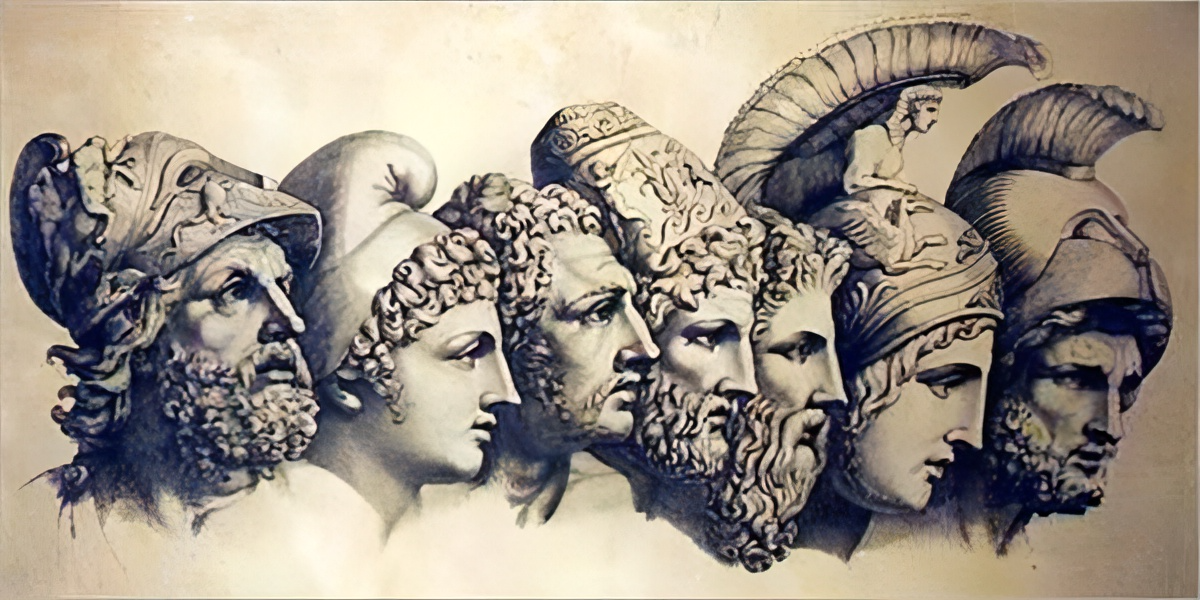The A-Live writing group, formed as part of the project developed by Arkas Academy, regularly organizes meetings with Arkas employees on a monthly basis, focusing on various themes. In each new issue, Arkas News presents its readers with the most popular content from the articles produced by the group.
In this issue, we are pleased to share with you the text titled “Arkas in Mythology” written by Ahmet Samet Unal.
Author: Ahmet Samet Unal
The Arkas name holds great significance for all of us. It represents an organization that has been a meeting point for us, and then an integral part of our lives. Beyond its business endeavors, Arkas enriches our lives through initiatives such as Arkas Academy, which promotes education and development. Together, we strive for growth and aim to surpass boundaries, making Arkas a renowned brand in various fields such as maritime, logistics, art, sports, and tourism. Our collective goal is to always strive for excellence and be the best in what we do. In this article, we will learn the mythological story of the name Arkas, which is a completely different aspect.
Following the completion of the six-part series on Anatolian History and Anatolian Civilizations, I’m excited to embark on a new series focusing on archaeology and history with this article. That’s why I decided to explore mythology, a captivating and enjoyable subject that I believe will captivate those with an interest in archaeology and history. I would like to start with the story of the Arkas character in mythology, which is very meaningful for all of us, on the subject of Mythos, which is one of the efforts to make sense of human creation and life.
Lykaon is the king of the Arcadian region in Greece. Lykaon has a beautiful daughter named Kallisto, and Kallisto is only a nymph in the retinue of Artemis. However, the God Zeus, charmed by Kallisto’s beauty, disguises himself as Artemis and sleeps with Kallisto. This union results in a child named Arkas. Learning of this, Zeus’ jealous wife Hera turns Kallisto into a bear. Fearing Hera’s anger, Zeus delivers Arkas to Maia, Hermes’ mother, to raise him. One day in the future, Arkas, the king of Arcadia, who was a hunter, goes hunting in the forest. Either through a coincidence or a trick of the jealous Hera, Arkas and his mother encounter. When he sees his mother Arkas, who had long ago been turned into a bear by Hera, he runs towards her excitedly to embrace her. But Arkas, who does not know that it is his mother, enters Zeus’ temple while running away from him, and while he is about to shoot his arrow at his mother, Zeus, who watches the goings-on from Olympus, prevents Arkas from shooting Kallisto and then takes both Kallisto and Arkas to the sky and turns them into stars. They henceforth become the constellations known as Ursa Major and Ursa Minor, the large and small bear stars. But Zeus’ wife is jealous of this too and asks Okeanos, the god of the sea, and Tethys, the goddess of the sea, that Kallisto, who turns into a star, should never be allowed to bathe in the sea waters. That is Ursa Major never sets.
As for Arkas, born of Zeus and Kallisto; Arkas led a very hard life until the age of 15. When Arkas is handed over from Maia to his grandfather, Lykaon, king of Arcadia, he is very unaware of what would befall. One day King Lykaon wants to test Zeus. He dismembers his grandson, Zeus’ son Arkas, and offers him to Zeus’ table. Lykaon, who dares to deceive Zeus, the god of gods, of course fails. Zeus, realizing Lykaon’s trick, overturns the table in a great rage and then brings thunders down, scouring the face of the earth. He punishes the impudent Lykaon by turning him into a wolf. He was able to put the pieces of Arkas, his son from Kallisto, back together and bring him back to life.
According to Greek mythology, Arkas was a hunter and the king of Arcadia. He was known for teaching people the art of baking bread and reading, and for spreading agriculture in Arcadia.
I had a great pleasure in writing it. I hope you had a good time reading it.


